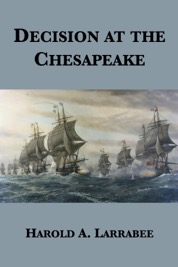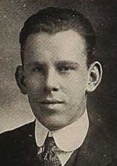
Harold Larrabee
Harold Atkins Larrabee (1894-1979) studied philosophy at Columbia, the Union Theological Seminary, and Harvard. He was a student, and later a young colleague, of William James, Josiah Royce, George Santayana, and Hugo Munsterberg. In 1918, he served as Psychological Examiner at Camps Greenleaf and Beauregard in Louisiana, and the US Army General Hospital, Oteen, North Carolina (1918-1919). Larrabee started teaching at Union College in 1925, where he stayed for 35 years, becoming Ichabod Spencer Professor of Philosophy. When he arrived at Union, courses in philosophy in many American institutions were subordinate to offerings in Theology or Mental and Moral Philosophy. Larrabee developed a strong Department noted for its rigorous, systematic, and historical investigation demanding a more elaborate specialization than was considered essential before World War I. Widely recognized by his peers, he held visiting professorships at Columbia University and Colby College; in 1953-1956, he was Director of the Editorial Center of the United States Bibliography, and a member of the Fulbright Screening Committee on Philosophy (1957-1959).
In 1939, he started working at the New England Quarterly, where he was a Senior Editor for 40 years. Larrabee edited Selections from Bergson (1949) and Bentham’s Handbook of Political Fallacies (1952), translated Man: Mind or Matter? (1951), In Quest of New Ethics (1953) and Sensation: The Origin of Life (1960) and wrote What Philosophy Is (1928), Decision at the Chesapeake (1964) and Reliable Knowledge (1945).
Click on the cover for details about the eBook:






